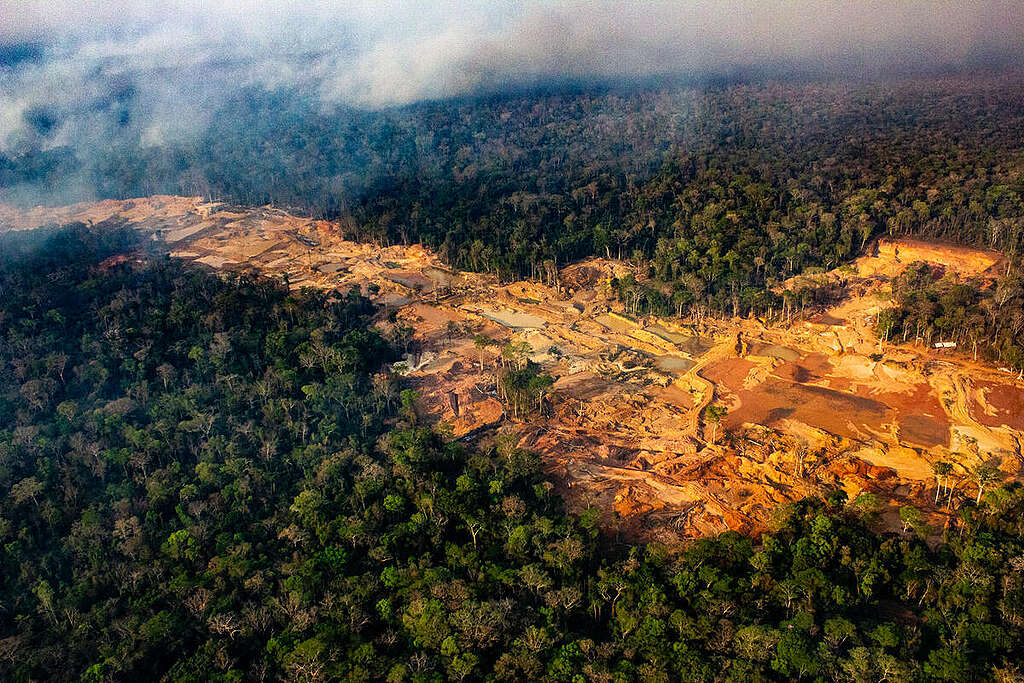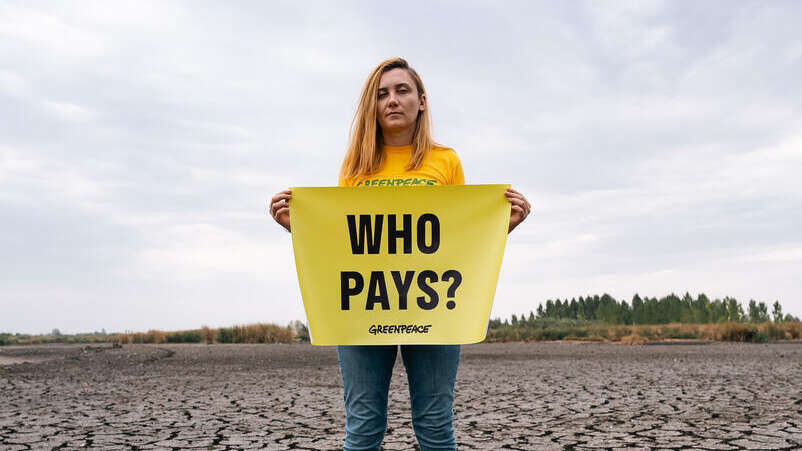2025 is shaping up to be one of the hottest years in history. As governments prepare to meet in Belém for the UN Climate Conference, COP30 will be a decisive test of global commitment to keep the planet within the 1.5°C limit. Taking place in the heart of the Amazon, this COP carries enormous symbolic and political weight. The Amazon is not only the world's largest tropical forest but also one of the most important climate regulators. Rainforest protection is essential to limit global heating and preserve life on Earth.
Ahead of COP30, Greenpeace is calling on governments to turn promises into action through an ambitious forest and climate agenda that puts people, justice, and the planet first. Here's what we are fighting for in Belém and beyond.
1. A global forest action plan to end deforestation and ecosystem collapse
The Amazon and other critical ecosystems are reaching tipping points that could trigger irreversible climate disruption. Greenpeace is demanding a global forest action plan to end deforestation and degradation by 2030 at the latest. Governments must commit to zero deforestation, zero ecosystem loss, and the full protection of Indigenous territories.
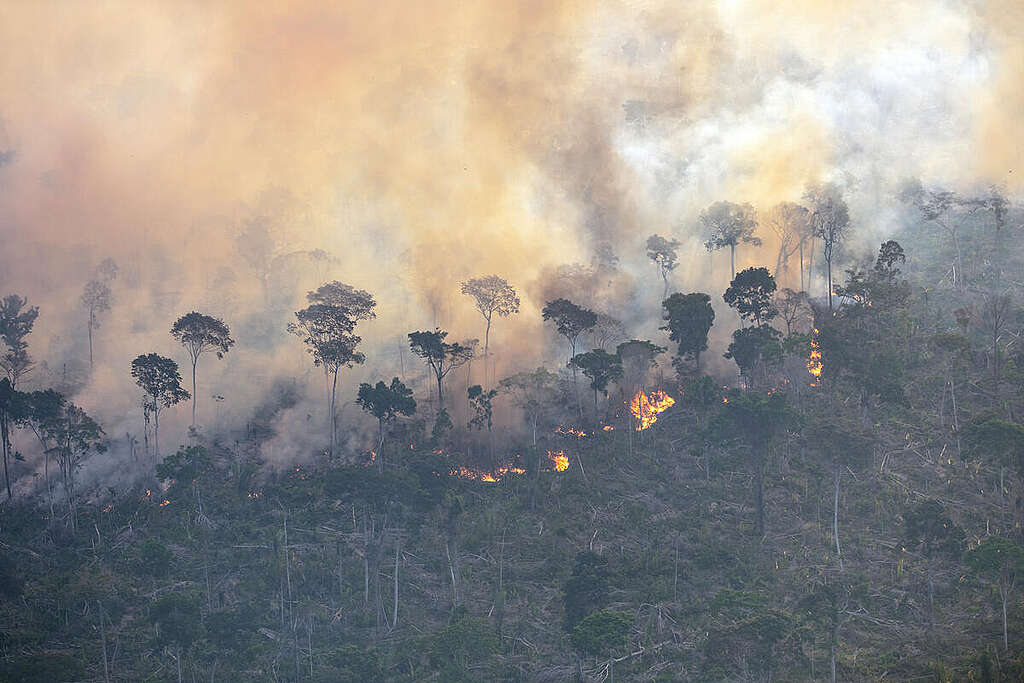
Industrial agriculture, mining and logging continue to drive destruction at alarming rates. Companies such as the world-leading meat giant JBS must be held accountable for forest loss linked to their supply chains. Financial institutions that fund these industries must also face binding regulations to stop financing destruction.
Protecting and restoring forests is one of the most effective and affordable ways to cut emissions, protect biodiversity and safeguard Indigenous livelihoods. A liveable future depends on it.
Ask political leaders to act on their promises to stop Amazon destruction.
2. A robust response to the 1.5°C ambition gap, including a fast and fair transition away from fossil fuels
The latest Emissions Gap Report from the UN Environment Programme (UNEP) finds that new national climate pledges under the Paris Agreement have only slightly lowered projected temperature rise this century - leaving the world on track for around 2.3-2.5°C of warming. The report compares countries' commitments with what's needed to stay below the 1.5°C limit, based on Nationally Determined Contributions (NDCs, the official emission-reduction plans each country submits under the Paris Agreement).
The fossil fuel industry is the main driver of the climate crisis. Around the world, communities are facing an escalating wave of extreme weather disasters, including longer heatwaves, record floods, devastating storms and uncontrolled wildfires. These events are destroying lives, homes and ecosystems, and the science leaves no doubt that fossil fuels are the cause.
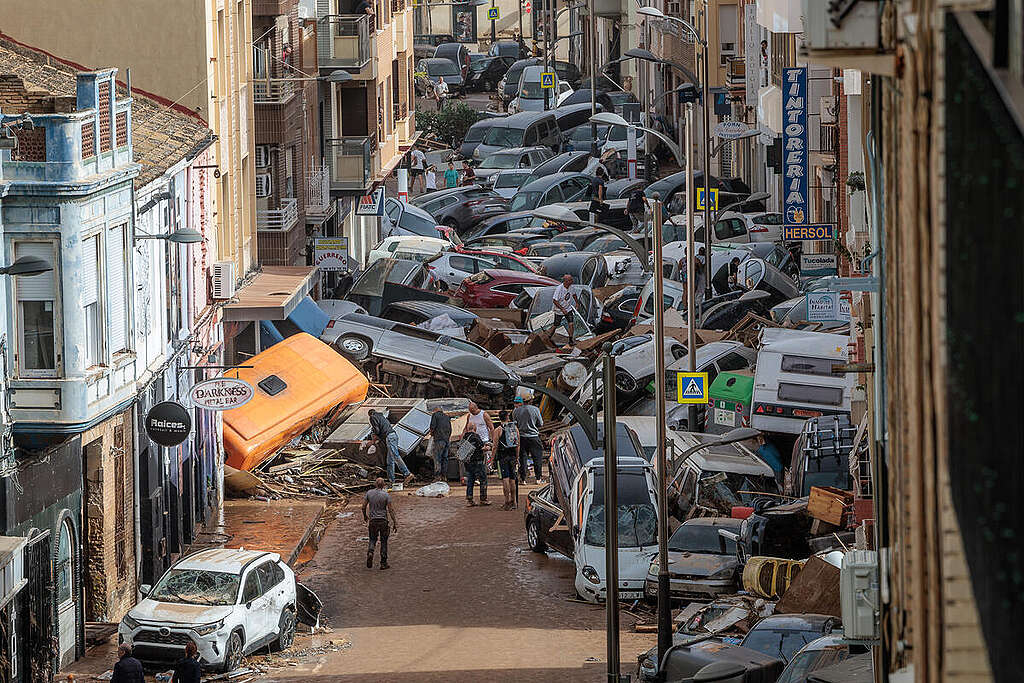
© Gabriel Gallo / Greenpeace
Yet the oil, gas and coal corporations and their billionaire backers continue to wield damaging influence in international negotiations. At COP30, Greenpeace is calling on governments to commit to a Global Response Plan to ramp up climate action and to outline clear plans to transition away from fossil fuels as part of a just transition.
Greenpeace rejects false solutions such as carbon offsets, carbon capture and storage (CCS) or "net zero" loopholes that allow polluters to delay real emission cuts. Real solutions already exist and the clean energy transition is making progress. Indigenous Peoples and Local Communities are also implementing successful climate and biodiversity initiatives, rooted in traditional knowledge and community governance.
The only way to respect the 1.5°C limit is through deep, rapid and equitable reductions in fossil fuel use, ending deforestation and ecosystem loss and by ensuring Indigenous Peoples and Local Communities' rights are guaranteed and their solutions are supported.
3. Climate finance and accountability: make polluters pay
Communities on the frontlines of the climate crisis are suffering devastating impacts while major polluters continue to profit. Climate justice requires that those most responsible pay their fair share - from oil and gas corporations to billionaires. Greenpeace is calling for new and additional public climate finance for adaptation, emission reduction, and to address loss and damage. Wealthy developed nations must finally deliver on their long-promised financial commitments under the Paris Agreement.
Greenpeace also demands accountability from fossil fuel and agribusiness corporations whose emissions are driving the crisis. Governments must introduce taxes on corporate polluters to fund recovery efforts and climate solutions.
The money is there. A small tax on just seven of the world's biggest oil and gas companies for example could grow the UN fund for responding to loss and damage by more than 2000% and help address the costs of extreme weather events. A fair tax on billionaires' extreme wealth could fund flood prevention, clean air, green cities, affordable housing, and nature protection.
The new Loss and Damage Fund agreed at COP28 must now become fully operational and properly financed at COP30, while funding for adaptation must be significantly increased. Climate justice is a matter of fairness and survival, not charity.
Sign the pact, record your story. Join the global movement to make polluters pay.
4. Protection for Indigenous Peoples and environmental defenders
Across the Amazon and beyond, Indigenous Peoples and local communities are defending forests, rivers and territories from exploitation, often at great personal risk.
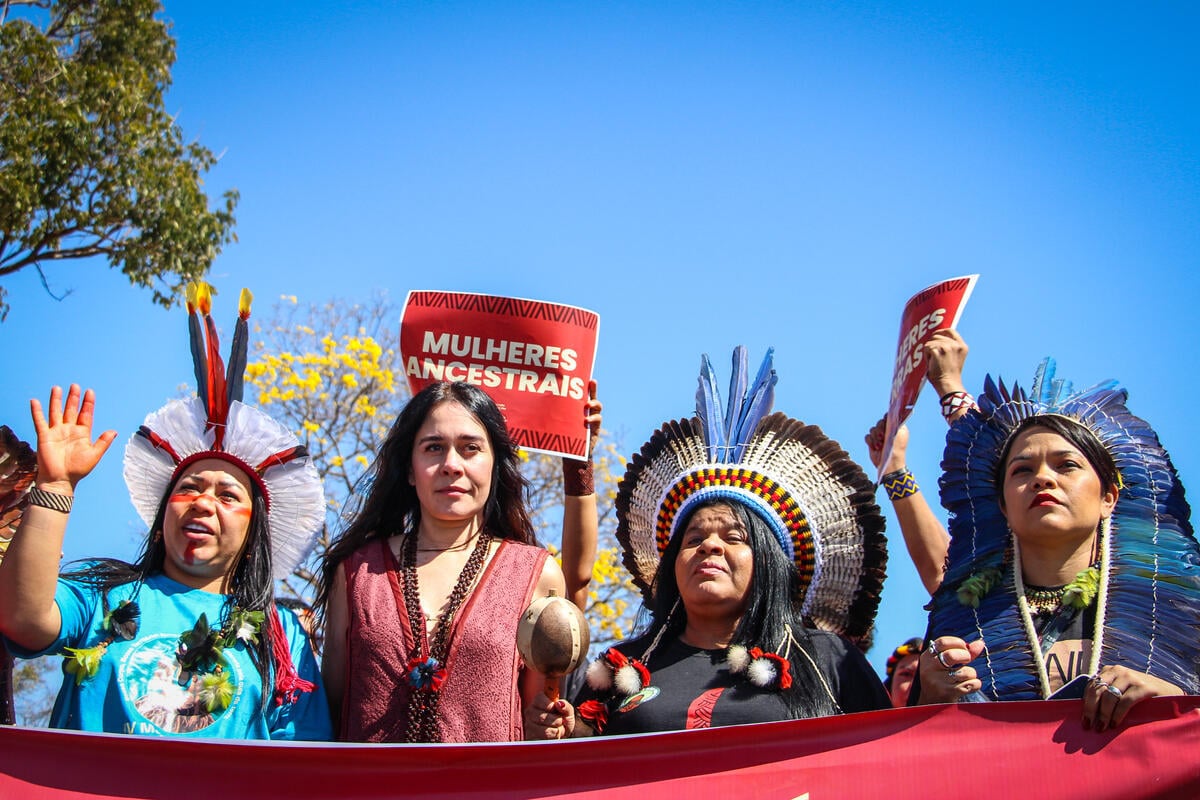
Indigenous leadership is key to keeping forests standing and sustaining the planet's biodiversity and climate. Recognising and securing Indigenous land rights, knowledge and expertise is essential to protecting critical ecosystems. At COP30, Greenpeace will work alongside Indigenous leaders to call for that recognition and for stronger protection from violence and persecution.
A turning point for people and planet
COP30 must deliver a breakthrough that unites climate and forest action. It is the moment for governments to commit to ending deforestation, phasing out fossil fuels, ensuring climate finance, and protecting those who defend life on Earth.
From Belém to the world, Greenpeace will continue to push for a liveable planet where justice, biodiversity and climate stability prevail. The limit is 1.5°C, a boundary we must not cross.
The fight for our common home continues.

